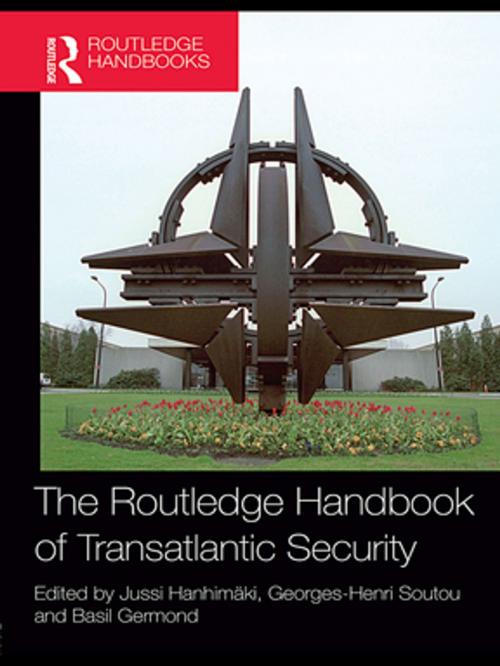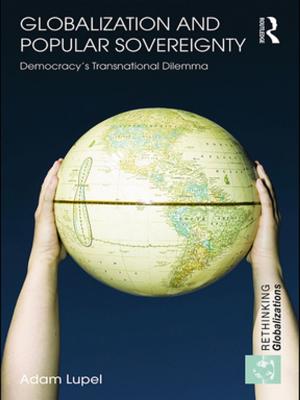The Routledge Handbook of Transatlantic Security
Nonfiction, History, Military, Strategy, Social & Cultural Studies, Political Science, International, International Relations| Author: | ISBN: | 9781136936074 | |
| Publisher: | Taylor and Francis | Publication: | July 2, 2010 |
| Imprint: | Routledge | Language: | English |
| Author: | |
| ISBN: | 9781136936074 |
| Publisher: | Taylor and Francis |
| Publication: | July 2, 2010 |
| Imprint: | Routledge |
| Language: | English |
This new Handbook provides readers with the tools to understand the evolution of transatlantic security from the Cold War era to the early 21st century.
After World War II, the US retained a strong presence as the dominant member of NATO throughout the Cold War. Former enemies, such as Germany, became close allies, while even countries that often criticized the United States made no serious attempt to break with Washington. This pattern of security co-operation continued after the end of the Cold War, with NATO expansion eastwards extending US influence. Despite the Iraq war prompting a seemingly irreparable transatlantic confrontation, the last years of the Bush administration witnessed a warming of US-European relations, expected to continue with the Obama administration.
The contributors address the following key questions arising from the history of transatlantic security relations:
- What lies behind the growing and continuing European dependency on security policy on the United States and what are the political consequences of this?
- Is this dependency likely to continue or will an independent European Common Foreign and Security Policy eventually emerge?
- What has been the impact of 'out-of-area' issues on transatlantic security cooperation?
The essays in this Handbook cover a broad range of historical and contemporary themes, including the founding of NATO; the impact of the Korean War; the role of nuclear (non-)proliferation; perspectives of individual countries (especially France and Germany); the impact of culture, identity and representation in shaping post-Cold War transatlantic relations; institutional issues, particularly EU-NATO relations; the Middle East; and the legacy of the Cold War, notably tensions with Russia.
This Handbook will be of much interest to students of transatlantic security, NATO, Cold War Studies, foreign policy and IR in general.
This new Handbook provides readers with the tools to understand the evolution of transatlantic security from the Cold War era to the early 21st century.
After World War II, the US retained a strong presence as the dominant member of NATO throughout the Cold War. Former enemies, such as Germany, became close allies, while even countries that often criticized the United States made no serious attempt to break with Washington. This pattern of security co-operation continued after the end of the Cold War, with NATO expansion eastwards extending US influence. Despite the Iraq war prompting a seemingly irreparable transatlantic confrontation, the last years of the Bush administration witnessed a warming of US-European relations, expected to continue with the Obama administration.
The contributors address the following key questions arising from the history of transatlantic security relations:
- What lies behind the growing and continuing European dependency on security policy on the United States and what are the political consequences of this?
- Is this dependency likely to continue or will an independent European Common Foreign and Security Policy eventually emerge?
- What has been the impact of 'out-of-area' issues on transatlantic security cooperation?
The essays in this Handbook cover a broad range of historical and contemporary themes, including the founding of NATO; the impact of the Korean War; the role of nuclear (non-)proliferation; perspectives of individual countries (especially France and Germany); the impact of culture, identity and representation in shaping post-Cold War transatlantic relations; institutional issues, particularly EU-NATO relations; the Middle East; and the legacy of the Cold War, notably tensions with Russia.
This Handbook will be of much interest to students of transatlantic security, NATO, Cold War Studies, foreign policy and IR in general.















